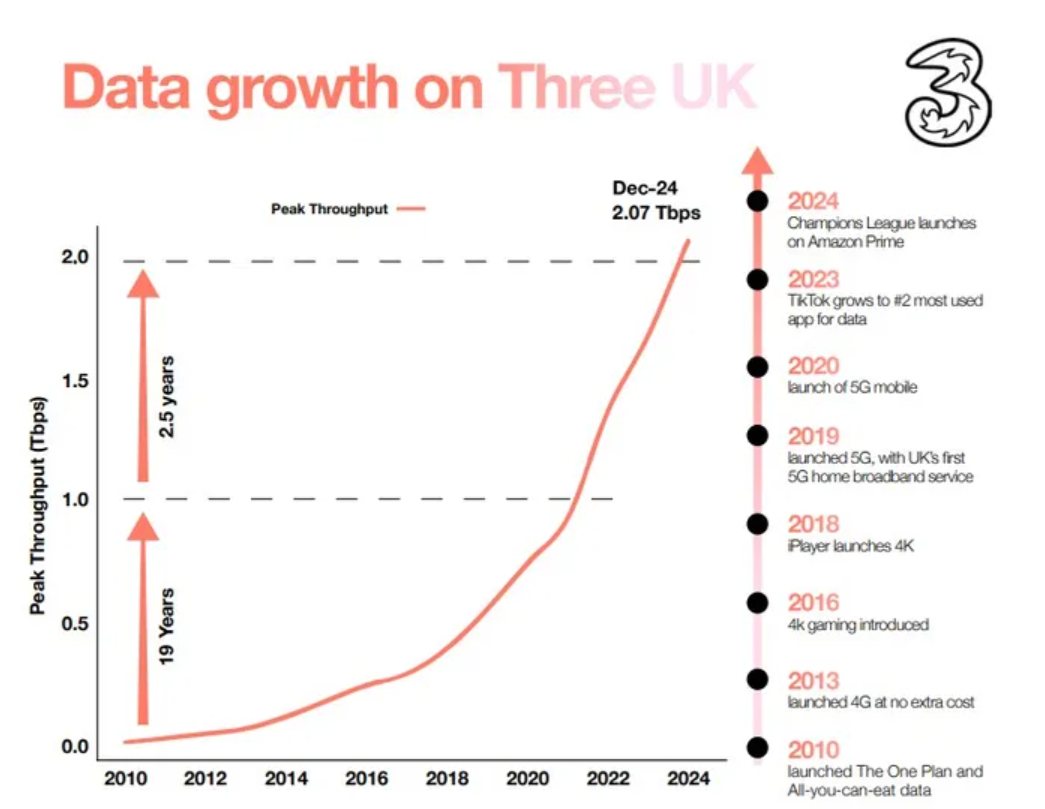
From Nokia to Ericsson: The transformation of Three UK's 5G services and core network
Share
The evolution of Three UK's 5G services and core network infrastructure signifies a pivotal phase in the telecommunications sector, marked by the transition from Nokia to Ericsson's innovative solutions. This strategic shift aims to create Europe's largest cloud-native core network, significantly enhancing Three UK's network capacity to support an unprecedented surge in mobile data usage driven by streaming and gaming activities. As Nokia steps back from the cloud infrastructure market to focus on application development, Ericsson's dual-mode 5G Core and Cloud Native Infrastructure solutions are set to bring transformative improvements in latency and network performance. This collaboration underscores Three UK's commitment to meeting the ever-growing data demands of its customers and marks a significant milestone in their ongoing network transformation journey.
Ericsson Takes Over Three UK's Core Network
Why Three UK Chose Ericsson
Three UK's decision to partner with Ericsson for its core network transformation stems from several strategic reasons. Firstly, Ericsson's expertise in developing cloud-native core network solutions aligns with Three UK's vision of creating Europe's largest such network. This partnership promises to significantly boost network capacity, accommodating the rapidly increasing mobile data demands. As Nokia exited the cloud infrastructure market to concentrate on application development, Ericsson's availability and capability to deliver on these requirements made it a suitable choice. Additionally, the existing relationship between Vodafone UK and Ericsson, with whom Three is set to merge, likely influenced this decision, ensuring compatibility and consistency across future operations. Ericsson's proven track record in 5G services and its commitment to innovation further reinforced their selection as a partner, promising enhanced network performance and reduced latency for Three UK's customers. This collaboration signifies a mutual commitment to network transformation and customer satisfaction.
What This Means for 5G Services
The transition to Ericsson's core network infrastructure marks a significant step forward for Three UK's 5G services. With Ericsson's dual-mode 5G Core and Cloud Native Infrastructure, Three UK anticipates substantial improvements in network performance and user experience. The enhanced core network will support a higher data throughput, essential for handling the explosive growth in mobile data consumption driven by streaming services and online gaming. Users can expect lower latency and more reliable connections, critical for high-demand applications such as virtual reality and real-time gaming. This upgrade aligns with Three UK's goal of ensuring long-term sustainability in meeting customer data needs. Furthermore, as the core network becomes partially operational by the end of this year, customers will gradually experience these benefits. The focus on cloud-native architecture also provides Three UK with the flexibility and scalability necessary to adapt to future technological advancements, reinforcing their position in the competitive 5G market.
Nokia's Role and Transition
Nokia has played a crucial role in the development of Three UK's network infrastructure, having been responsible for their cloud-based 5G-ready core since 2019. During this period, Nokia's solutions helped Three UK prepare for the initial roll-out of 5G services, contributing to the operator's ability to handle increasing data usage efficiently. However, as Nokia shifts its strategic focus away from cloud infrastructure toward application development, it has paved the way for Ericsson to take over the core network responsibilities. This transition reflects Nokia's broader business strategy to prioritize areas where it sees the most potential for innovation and growth. While stepping back from building cloud-native core networks, Nokia's ongoing work on application development continues to influence the broader telecommunications landscape. This shift allows Nokia to concentrate resources on emerging technologies and applications that will shape the future of connectivity, maintaining its influence in the telecom industry, albeit through a different focus.
